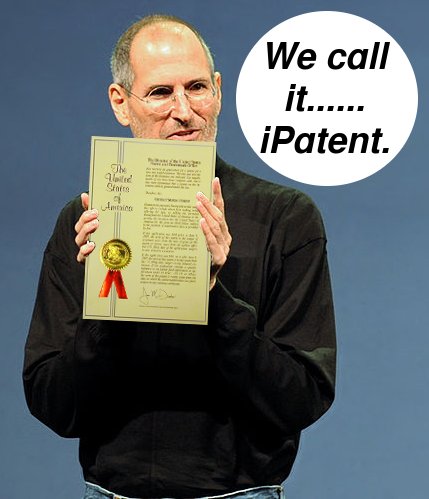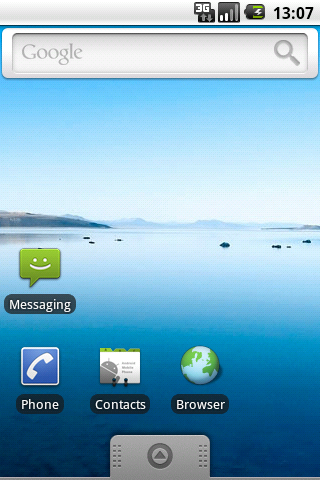05.29.12
Posted in Europe, GNU/Linux, Google, Microsoft, Patents at 12:53 pm by Dr. Roy Schestowitz

Summary: Why software patents and the freedom of Android are becoming most relevant to this Web site
THE coverage of the Oracle vs. Google case is still out there, but it’s becoming old news and more of a subject of debate. Here in this site we’ve focused on Novell’s seminal taxation of GNU/Linux, then moved on to more on OOXML (patent trap and lock-in), had a deep look at Comes vs. Microsoft, and then broadened our scope of coverage regarding patents. Microsoft is still a very major factor. We try not to cover the same type of stories for too long as it becomes repetitive, so in recent years we looked more and more at Android. It’s probably one of the fastest-growing OSes ever, if not the fastest-growing indeed. It spreads Linux like fire.
The Motorola case is a reactionary case to defend against Microsoft Aggression (Microsoft essentially bribed B&N to stop fighting). The case is very important right now and one reporter correctly says:
With Microsoft there is no such justice or fairness.
Microsoft has solicited every major Android vendor and claimed that there is alleged patent infringement in Android that violates Microsoft IP. Microsoft has never brought its claims to trial, there has never been a fair fight. Microsoft’s route is far more insidious, taking money from Android without ever actually proving a claim.
Now that Oracle has been defeated once, Microsoft should be plenty worried. Then again, Microsoft doesn’t settle in courtrooms.
Still, wouldn’t it be great if Google could get Microsoft into a court of law to force them to prove their allegations? That would serve the Android (and open source) ecosystem well as the FUD that Microsoft continues to allege could finally be put to rest.
The inventor of Java is unhappy with the outcome of the Java trial and as noted by Wired the other day, Microsoft and Apple already prepare more patent attacks on Android, via proxies. As TechDirt puts it:
You may recall last summer that Apple, Microsoft, EMC, RIM, Ericsson and Sony all teamed up to buy Nortel’s patents for $4.5 billion. They beat out a team of Google and Intel who bid a bit less. While there was some antitrust scrutiny over the deal, it was dropped and the purchase went through. Apparently, the new owners picked off a bunch of patents to transfer to themselves… and then all (minus EMC, who, one hopes, was horrified by the plans) decided to support a massive new patent troll armed with the remaining 4,000 patents. The company is called Rockstar Consortium, and it’s run by the folks who used to run Nortel’s patent licensing program anyway — but now employs people whose job it is to just find other companies to threaten…
A new article by a TechDirt contributor, Glyn Moody, says that this monopoly madness is good for nobody. To quote:
Monopolies, whether created by the state or created by the market, can be problematic for open source, and as technology moves forward, new spaces to monopolise are always appearing.
Moody then adds this link to those observe the situation of software patents in the EU:
The next Competitiveness Council will be held on May 30th and 31st 2012. François Hollande’s government will be attending it for the first time1. April calls upon the French president to take this opportunity to act against software patents and to bring up the flaws and the issues of the current unitary patent project.
There is opposition in the Danish parliament to EU unitary patent and software patents, so there is hope that people — not corporations — will vote on the subject. For the time being:
The government does not have the necessary 5/6 majority for the single EU patent court.
As long as Microsoft’s patent assaults lack legitimacy in the majority of the Western world, Android may have an easier way out of this extortion. We are going to spend more and more time looking at the Motorola (Google) case because it may as well end the threat to the cost (patent penalty) and freedom of Android. Google is not going to settle; it has to much to lose. █
Permalink
 Send this to a friend
Send this to a friend
05.26.12
Posted in Apple, GNU/Linux, Google, Microsoft, Vista 8, Windows at 11:13 am by Dr. Roy Schestowitz
Antiquated operating systems will perish

Summary: A look at what’s coming from Vista 8 and why Windows is relegated to just stay (and decay) in an ageing market
A couple of days ago I went to several shops looking for a tablet. I ended up getting an Android-powered Archos tablet at the end of yesterday (Android 4.0). During this shopping exercise I learned that Windows is never an option; in some shops, Android is the only choice (there’s no Apple gadgetry on the shelf). For Microsoft, it has become harder to appeal to shops, even in the UK where Microsoft is usually stronger than usual. When they control products excessively the customers and OEMs alike just cease to show interest. Or as put by Linux User:
The software ecosystem has interesting tentacles, says Simon Brew, as he investigates the trend of selling icons onto increasingly bloated Windows computers…
On the tablet and the phone there is no room for bloat. This is why Vista 8, for example, will never succeed in this space. As shown in the news recently, Windows 8 will “disappoint” as “analysts cut price targets on HP, Dell” (an expected development).
It’s worse than people may realise because the software is very buggy and “clicking ‘preview’ [in Vista 8] may wipe computer hard drive” according to this report. To quote:
A new warning for Windows users hoping to get a sneak peak at the Windows 8 operating system. Clicking on ‘preview’ may wipe your computer’s hard drive of all information.
There weren’t many articles written about it, unlike for instance the way in which Microsoft is repelling developers and pushing them to use undesirable GUIs. Here is a FOSS angle on this branch of news (it was originally about Microsoft’s development tools and tolls):
New obstacle for open source on Windows 8
Microsoft has published its product lineup for Visual Studio 11 and open source developers are noting that the new line up will cause particular problems for creators of open source desktop applications on Windows. The company is planning to drop support for desktop-style applications from the free-of-charge Visual Studio Express, meaning that developers will only be able to develop Metro applications with it.
SJVN already names some ways to avoid Vista 8:
Some people are still sure Windows 8 is going to be the cat’s meow. I’m sure Windows 8 and its Metro interface will be more like a cat’s yowl of pain. The more I look at Metro, the more I’m sure that Microsoft’s new desktop will flop as badly as the Facebook IPO.
It’s not just me. Business analysts, who couldn’t care less about technology but care a lot about what customers think, are saying things like “Windows 8 will prove to be a disappointment.”
It is worth noting that Microsoft finally admits publicly that Vista sucks, but only because it tries to sell Metro:
Microsoft must really love Windows 8, or hate its legacy install base.
The Aero interface introduced with the hated Windows Vista and perpetuated with the loved Windows 7 is being canned from Windows 8, the company has revealed.
In another achingly long Windows 8 blog post, Microsoft called the Aero interface it once championed and poured so much love upon “dated and cheesy”. Yes, Windows 7 peeps, it’s official: you’re using a cheesy-lookin’ piece of software.
Tim had this to say the other day:
So this leaves the question, what is the real reason for the deal. Barnes & Noble have signed up with Microsoft, which if they didn’t have problems before, they certainly will have now. The details of that deal involve Microsoft ebook readers on its WP7 platform and presumably Windows 8 products, which means they are already doomed – just look to Nokia for how well struggling business fares with a Microsoft partnership.
The B&N deal was more about passing a bribe for a court case to be dropped (leaving Android weaker than before on the patent front). B&N would have to be insane or suicidal (or bribed) to actually choose Windows rather than Android/Linux for eReaders. The same goes for Nokia. We know how that went. Nokia might even be bankrupt in a year or so (when cash savings will have run out). █
Permalink
 Send this to a friend
Send this to a friend
Posted in GNU/Linux, Google, Oracle, Patents at 10:44 am by Dr. Roy Schestowitz
Eating away at innovation

Summary: Quick analysis of the verdict from the Oracle vs. Google case and a few other bits of news, showing quite clearly that it’s part of a much broader problem
THERE IS hardly any need for us to point out what even the MSBBC has already stated by coverage. As a technical news site put it:
Just over a week ago, the jury began deliberations on the ongoing patent infringement case between Google and Oracle. After waiting in the wings, with bated breath, the verdict is finally in, as Judge William Alsup of the U.S. District Court of Northern California dismissed the jury this afternoon after a unanimous decision that ruled in favor of Google’s mobile OS — declaring that Android did not in fact infringe on the Oracle patents in question.
Here is the coverage from Pamela Jones:
The jury verdict is in. They found no infringement of the patents!
Linus Torvalds had something to say as well:
Linus Torvalds, the father of Linux writes on Google +, “Prediction: instead of Oracle coming out and admitting they were morons about their idiotic suit against Android, they’ll come out posturing and talk about how they’ll be vindicated, and pay lawyers to take it to the next level of idiocy.
Sometimes I really wish I wasn’t always right. It’s a curse, I tell you.”
Richard Fontana from Red Hat has a new analysis and so does SJVN, who wrote:
Oracle loses its patent claims and so Google has almost completely defeated Oracle in its vain attempts to squeeze an intellectual property payoff from Google and Android.
This is all very happy and encouraging, but it won’t be the end of the bigger problem.
According to this article, SCOTUS might have a key ruling on a software patents redone:
The United States Supreme Court signaled skepticism about broad software patents Monday when it ordered reconsideration of an online advertising patent. The high court asked the United States Court of Appeals for the Federal Circuit to reconsider its decision approving the patent in light of a March Supreme Court decision restricting patents on medical diagnostic techniques.
The online ad patent, granted to a company called Ultramercial, covers the concept of allowing users to watch a pre-roll advertisement as an alternative to paying for premium content. Ultramercial has demanded licensing fees from several online video sites, including Hulu and YouTube. One target of Ultramercial’s legal threats, a company called WildTangent, challenged Ultramercial’s “invention” as merely an abstract idea not eligible for patent protection.
if this is carried onwards, maybe one day we’ll see all software patents — not just Oracle’s — put to rest. Until then, Apple will be “Heading To Court” with charges against companies it is unable to compete with fairly (no compromise). It still makes senses to suspect that Oracle’s attack on Android was in part motivated by Ellison’s “best friend”,Steve Jobs. We are dealing with aggressive megalomaniacs here. █
Permalink
 Send this to a friend
Send this to a friend
05.21.12
Posted in GNU/Linux, Google, Microsoft, Patents at 6:42 am by Dr. Roy Schestowitz

Summary: Covering what’s right/correct — not what’s wrong/incorrect — about the Microsoft case against Motorola/Android
THE patent assault launched by Microsoft against Android is a really big deal. One of the fastest-growing platforms (ever!) is coming under constant extortion from an ageing monopolist. Need we stand aside helplessly while this is happening?
Apple’s continued patent hoard aside for a moment (Apple does malicious things too), Microsoft the acquirer/developer-turned-troll is hoardingpatents on tablets and software. Microsoft is trying to take Android apps (with a patent) while attacking Android, taxing it, and removing features from the platform (see this disturbing article. We’ll keep this post concise by citing, not quoting or rewriting).
“Both Apple and Microsoft like to pretend to be the victims, even when it’s Apple which is the litigator and Microsoft is the aggressor (or interchangeably so).”Microsoft seeks a restraining order in the patent case against Motorola, which will soon be part of Google (at least the relevant division). The response to Microsoft’s aggression can be seen as Google fighting against Microsoft’s extortion against Android as a whole (granted, resistance to aggression is not aggression). Some recent articles say that it’s only a matter of time before all green lights are shown for Google to indeed occupy Motorola’s seat in this court case and in the process there might be offloading. As Microsoft essentially bribed B&N to stop fighting for justice this case is very important and Microsoft goes to great lengths to dodge a loss, pretending it (Microsoft) is the victim in all this storm that it, itself, started. Both Apple and Microsoft like to pretend to be the victims, even when it’s Apple which is the litigator and Microsoft is the aggressor (or interchangeably so).
Sometimes Microsoft gets its way by removing deterrence like an embargo (after action in Germany, such as this or even this), but amid this legal fight we also find disinformation. Here is one failed embargo attempt, hardly at all reported while in the US we find that: “In a Seattle court hearing Monday, attorneys for both companies disclosed talks occurred shortly after Microsoft filed a lawsuit in October 2010 alleging that Motorola was unfairly charging the software company to use its video-streaming and WiFi technology. The talks may have continued as recently as February, according to statements in court and filings.”
Notice what Microsoft is doing here. While trying to extort Motorola it ensures it has some sob story, pretending to be on the defensive side (the Microsoft PR machine amplifies this to gain sympathy). As a matter of strategy, Microsoft also moves software distribution to the Netherlands, dodging a platform which is more likely to serve justice for Android:
What makes Germany hub of tech patent battles
Is Germany’s system of litigating disputes over patents bad for business? Microsoft’s decision to move its European logistics and distribution headquarters to the Netherlands from Germany has generated a debate over patent law here, where it is easy to block the sale of a rival’s product even before an infringement claim is verified.
Recently, an ITC ruling against Motorola was made publicly known and as Microsoft loves to use lobbyists such as Microsoft Florian we were showered with flagrant misdirections. The boosters are using Slashdot for their deception and one Microsoft booster wrote a deceiving article, ensuring it gets promoted in Slashdot (after being submitted by the booster himself), under a similarly misleading headline and description. Passive Slashdot followers further amplified it in other sites, perhaps not realising that they got bamboozled somewhat.
As one reader told us, “Groklaw didn’t seem to pick up this one. Slashdot tries to spin it as pro-M$ but the following comment has some good points: http://yro.slashdot.org/comments.pl?sid=2860233&cid=40048505.”
Microsoft boosters keep seeding the press with Android-hostile coverage and even in the Apple vs. HTC case we see spinners making an appearance (without disclosure):
Apple v. Google Case May End Patent Gold Rush
Since the Supreme Court refused to narrow patents on software and business methods two years ago, there has been a patent market boom.
Watch Microsoft lobbyists interjecting themselves into articles. From CNET:
At least, that’s according to the U.S. District Court of Delaware, which ordered the two companies to discuss a potential settlement. The talks would be moderated by Judge Sherry Fallon, Foss Patents reported today.
This is why Microsoft will continue to use lobbyists. It gets to distort press coverage, so trial by press is subjected to deception by people like Microsoft Florian as a source, briefed by paying clients like Microsoft and given instructions, then proceeding to ‘spamming’ journalists (spam by proxy). Well, another longtime Microsoft booster is relaying Microsoft propaganda for phones as though CNET is just becoming a Microsoft platform for whatever agent to pin ads/press releases onto. Bloomberg covered this better.
The bottom line is, the Motorola-Microsoft case is an important one for the freedom of Android and Microsoft keeps using lobbyists and boosters to misinform the public about it, having recently paid B&N to also stop exposing Microsoft abuses. This is a serious problem which should worry everyone. For development, I consider buying ANDROID+TABLET.htm”>this tablet later in the week because it seems like Motorola is the main company with enough of a nerve/guts to stand up to Microsoft and keep Android free. Being careless about what Microsoft is doing is the path to disaster. █
‘The only thing necessary for the triumph [of evil] is for good men to do nothing.’
–Edmund Burke
Permalink
 Send this to a friend
Send this to a friend
05.19.12
Posted in Apple, GNU/Linux, Google, Patents at 4:46 am by Dr. Roy Schestowitz

Original photo by Matt Buchanan; edited by Techrights
Summary: Bits of patent news regarding Apple and its patents
THE tales of HTC versus Apple are further complicated now that HTC removes features to dodge Apple patents. As one site put it:
The HTC One X for AT&T and Evo 4G LTE for Sprint already bear the distinction of being the first Android devices to face an import block at US Customs for potentially infringing an Apple patent, but the ignominy may be fleeting: sources tell us that HTC’s US devices use a customized version of Android that removes the offending “data tapping” feature. That’s confirmed by our own examination of an AT&T One X and Sprint Evo 4G LTE, neither of which exhibit the key behavior excluded from importation into the US by the International Trade Commission, and which both include a new settings screen not present in the international One X.
The customer clearly won’t benefit from this. Oracle in the mean time is fighting against the very heart of the platform and its mind is changing;
Both legal teams in Oracle’s lawsuit against Google had recently seemed determined to end the case as efficiently as possible; however, things took a turn for the complicated during the latest proceedings. When the final statements in the patent portion of the suit were concluded, Oracle’s team of lawyers went back to discuss the issue of damages once again, with Judge William Alsup surprising attendees by revealing that he had, in fact, spent time programming before.
The Oracle case against Android helps Apple and the longer it goes on for, the less confident developers will feel about developing for Dalvik. Apple is the mean time is hammering on HTC, which received patents from Google:
In its latest legal salvo, the iPhone maker has asked the ITC to dismiss five patents that Google issued to HTC last year.
All those patent fights among giants are harming everyone. Google ought to just do more to squash all software patents. Its current approach leads to the perception that software patents can be balanced. As this new post puts it:
Big Player Patent Battles Trickle Down to Everyone
[...]
When you look around at the news these days, you know that IP law is having a big impact on how big companies are spending their money. It seems that every company is playing defense with patents instead of taking the time innovate. High profile purchases such as Google buying Motorola Mobility was probably driven more by the company’s patent cache more than its technology holdings.
It has become clearer that all software patents — no matter whose — need to go. They in no way serve the common good. █
Permalink
 Send this to a friend
Send this to a friend
05.16.12
Posted in GNU/Linux, Google, Microsoft, Oracle, Patents at 11:34 am by Dr. Roy Schestowitz

Summary: A roundup of patent news involving Android and the US patent/copyright system, which facilitates ridiculous patents or lawsuits over APIs
THE moment that Nokia started suing Android vendors with patents we knew that it was just the beginning of Elop’s ugly strategy. Nokia now uses 45 patents against HTC and Viewsonic, which are responsible for many Android devices. Nokia is not going to sue Microsoft because it has been acting more as a proxy for Microsoft since signing a bizarre real that led to lawsuits against the management.
“Nokia is not going to sue Microsoft because it has been acting more as a proxy for Microsoft since signing a bizarre real that led to lawsuits against the management.”Now that Oracle directly supplies Java updates for Apple platforms, it sure seems like Oracle has also been acting as a bit of a proxy for Apple with its anti-Android lawsuit. Oracle’s CEO considers Apple’s spiritual leader to be his “best friend” after all. Oracle has not quite been getting its way so far. “Google vs Oracle court case reached a milestone today as the jury gave its verdict,” claimed a recent article. “The verdict is clearly in favor of Google as in this phase Oracle gets nothing out of this expensive court case.”
The same source says that “Oracle has already lost the first round of its battle against Google’s Android as only 9 lines of code found to be infringing which amounts to $0 in damages.”
There is a lot of coverage in Groklaw (with a lot of comments), but it’s very much aimed at lawyers. CNET speaks of Google’s stance:
Google sums up: No ‘shred of evidence’ for patent claim
[...]
Google’s counsel followed up with its closing statements in phase two of its legal battle against Oracle at the U.S. District Court of Northern California on Tuesday morning.
CNET is also summing up Oracle’s arguments and it mentioned Europe's stance on copyright on APIs right here. CNET has a lot of coverage on this subject and it is actually not too bad. Ars Technica writes this piece about the stance of glorified lawyers (judges):
Top judge: ditching software patents a “bad solution”
For decades, the courts have struggled to decide what types of innovation are eligible for patent protection. For much of that time, the central institution in that debate has been the United States Court of Appeals for the Federal Circuit, the appeals court that has jurisdiction over patent cases.
The Federal Circuit has been strongly pro-patent since its inception in 1982. It was the court that opened the floodgates for software patents with a series of permissive decisions during the 1990s. And it was the court that gave the green light to patents on medical diagnostic techniques, only to be overruled by the Supreme Court in March.
Why is the Federal Circuit so enthusiastic about extending patent protection to new fields? The court’s current members are understandably circumspect, but retired judges can be more candid. So on Friday, Ars Technica traveled to Princeton University to hear a keynote address by retired Judge Paul Michel, as part of a conference on patent law. Michel served on the Federal Circuit form 1988 to 2010, and was its chief judge for the last six years of his tenure. His comments shed light on the motivations behind the dramatic changes in patent law over the last two decades.
Judges ought not to rule on those matters because being lawyers — not productive workers — they serve an agenda other than the public’s.
Over at IDG, Dr. Glyn Moody, a scientist by background and trade, explains why software patents are bad and ties that to Microsoft’s lobbying:
VideoLAN shows how real that problem is. There simply aren’t many free software projects implementing video standards, say, because it’s impossible for them to comply with FRAND licensing. The only software that has flourished in this sector – VLC – has done so because the project is located in France, with laws there that it believes allow it to use those video standards without needing any licence at all. And as the project’s final comment makes clear, VideoLAN is not claiming that its users are covered by any licence. On the contrary, it explicitly warns them that it takes no responsibility for any “illegal use” of its projects.
I suggest that in many parts of the world, open source programs like VLC are indeed being used illegally, for the simple reason that VideoLAN has no licence to implement the video standards that are subject to patents in some parts of the world. Contrary to what Microsoft would have the Cabinet Office believe, the presence of FRAND-licensed standards has had a chilling effect on the production of certain classes of free software, precisely because of this problem.
VLC’s billion downloads are a testimony to the fact that people are keen to run high-quality open source software on the desktop, even though – perhaps unbeknownst to them – their use of it in certain jurisdictions is almost certainly illegal. Allowing FRAND-based standards in the UK would ensure that even more open source software is throttled at birth; or, if written in other jurisdictions that do not recognise the need for any licensing, that it is used by people ignorant of, or indifferent to, the letter of the law – hardly something the UK government would want to encourage.
If you want to help minimise the use of restrictive FRAND-based standards in the UK, you still have time to make a submission to the consultation on open standards, which closes on 4 June. I urge you to do so.
The SCOTUS and the USPTO, just like the UK-IPO, are run by lawyers, not people whose career is really at stake here. It should not be surprising that the USPTO covers its own back by defending software patents from Oracle:
The fact that this patent is now valid for inclusion in the lawsuit means that the number of patents Oracle can leverage in the proceedings has increased from two to three. The USPTO had declared the patent invalid on 7 February, a decision that Oracle appealed. The fact that Oracle has won this appeal and managed to get the patent declared as valid again could allow Oracle’s lawyers to make a stronger argument in court than if it had not been re-examined as it has already been challenged with prior art.
Following the borderline retreat of Oracle from patents this may mark a return to that awful strategy which the EU would not endorse. Just as patents were put aside the bureaucrats from the USPTO came out again with more complications at hand:
As Oracle’s litigation against Google over copyright and patent violations in Android goes on, all sides seem determined to end the lawsuit sooner rather than later. Judge William Alsup has overruled the jury in another matter of copyright infringement, and the patent phase of the suit is expected to end some time this week.
And further, says the same source:
Although Oracle’s lawsuit against Google is now well into the patent phase, several motions have been filed over the last few days that pertain to the matters of alleged copyright infringement from the earlier phase of the trial. Google has also moved to drop the damages part of the case, which would leave the judge to decide applicable damages by himself.
Regarding the latest ruling, it may get overruled and in the mean time developers will suffer:
Developers fear they’ll be stifled by judgement in Oracle-Google suit
If Oracle prevails in its contention that APIs can be copyrighted, software developers could be stifled in how they work and innovate, say observers of the ongoing Oracle-Google trial, in which Oracle claims Google improperly used Java technology in the Android mobile software platform.
The case of Microsoft vs. Motorola can help defuse some of the aggression from Microsoft (through deterrence, such as blocking Vista 7), but the Oracle case is probably a bigger issue right now. As an Android developer myself, this has an effect on me too. The simplest fix, which is also most rational, is to invalidate all software patents and amend copyright laws (modernise them). █
Permalink
 Send this to a friend
Send this to a friend
05.14.12
Posted in GNU/Linux, Google, Oracle, Patents at 11:22 am by Dr. Roy Schestowitz

Summary: The case against Android notwithstanding, the highest European court rules that APIs cannot be covered by copyrights
WHILE developing for Android, one must get accustomed to API changes and harness the subtle differences between Android versions, not just different device types with a wide variety of hardware specifications. But the API is what unifies everything and enables many programs to run on many devices, bringing value (and users) to the platform. Oracle, headed by a close friend of Apple’s spiritual leader, decided not only to attack Android with software patents but it also took a blow at the API level. In Europe, a new ruling from the highest court disqualifies Oracle’s strategy. To quote: “The European Court of Justice ruled this morning that the functionality of a computer program and the programming language it is written in cannot be protected by copyright.”
Here is another take on it:
The European Court of Justice ruled on Wednesday that application programming interfaces (APIs) and other functional characteristics of computer software are not eligible for copyright protection. Users have the right to examine computer software in order to clone its functionality—and vendors cannot override these user rights with a license agreement, the court said.
Over in the US, however, the ruling is more complicated:
The jury deliberating over Oracle Corp.’s claims that Google Inc. infringed copyrights protecting Oracle’s Java technology reached a mixed decision Monday, which could leave Google on the hook for only a relatively minimal amount of damages.
No royalties should be paid based on European principles, but in the US it’s another story. Oracle is just trying to cause damage to Android and developers should speak out against it. In my personal blog I’ve begun writing about Android development. █
Permalink
 Send this to a friend
Send this to a friend
05.12.12
Posted in GNU/Linux, Google, Java, Microsoft at 8:40 am by Dr. Roy Schestowitz

Summary: The Microsoft boosters from Miguel de Icaza’s company find new ways to disrupt Android promotion and promote Microsoft .NET instead
Fernando Cassia reminds us that “de Icaza is hell bent on destroying Java since he started his .Net clone”
He links to this new article which relates to Xamarin‘s attempt to sabotage Android with Microsoft .NET (or Mono):
A company has substantially ported Google’s Java-based Android software to use C# and the .NET framework, a move that could be the first step towards creating an Android-like operating system that avoids legal entanglements with Oracle.
When will the Microsoft fans from Xamarin realise that the Free software community does not care for their work? All they do is damage Free software and a lot of Microsoft promotion. █
Permalink
 Send this to a friend
Send this to a friend
« Previous Page — « Previous entries « Previous Page · Next Page » Next entries » — Next Page »

























 Content is available under CC-BY-SA
Content is available under CC-BY-SA